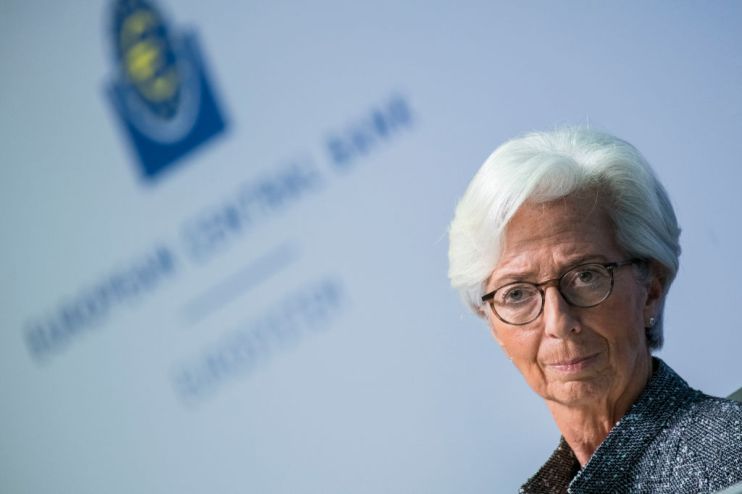ECB holds rates at record low to fuel inflation

The European Central Bank has kept interest rates at a record low in a bid to stimulate higher price growth to help it reach its two per cent inflation target.
The central bank of the 19 nations that share the euro said it intends to keep rates at historic lows for longer than first estimated.
In a statement, the ECB said it “expects the key… interest rates to remain at their present or lower levels until it sees inflation reaching two per cent well ahead of the end of its projection horizon and durably for the rest of the projection horizon.”
Read more: Fed hints that interest rate rises will start in 2023
The ECB recently changed its inflation target from at or below two per cent to two per cent. Latest data shows inflation in the Eurozone is running slightly below the central bank’s target, hitting 1.9 per cent annually in June.
The central bank also indicated it would be prepared to plunge rates even further into negative territory if price rises stay moderate – rates currently stand at -0.5 per cent.
The ECB’s own forecasts show that inflation in the Eurozone will not reach two per cent over the next two years. For most of the past decade, price rises have been depressed in the region.
Tej Parikh, director Fitch Ratings, said: “The ECB’s refreshed forward guidance today reaffirms its intentions to keep monetary policy loose for longer.”
“The central bank’s statement creates space for temporarily higher inflation by suggesting that even price increases in line with its revamped 2% symmetric target must be material and sustained before intervention may be necessary.”
Read more: BoE deputy governor moves to quash inflation fears
Gurpreet Gill, macro strategist, global fixed income at Goldman Sachs, said: “The central bank cemented its dovish policy guidance, noting its persistently accommodative policy stance may require policymakers to be tolerant of inflation overshooting its target.”
Bond purchases left unchanged
The ECB left the scale of bond purchases under its quantitative easing programme unchanged to support the Eurozone’s economic recovery from the Covid crisis.
The central bank will continue to make net asset purchases of €1.85 trillion until March 2022 and until “it judges that the coronavirus crisis phase is over.”
The announcement comes as criticism of central banks’ loyalty to QE is coming under intense scrutiny.
Last week, an influential House of Lords committee warned that the Bank of England has become “addicted” to QE, a mechanism that has been blamed for driving wealth inequalities by fuelling sharp asset price increases.
There are also concerns that central banks have become a buyer of last resort in bond markets, prompting fresh fears that once they taper asset purchases, borrowing costs could rise sharply.
QE works by central banks creating digital money to purchase government and corporate bonds from financial institutions. It is intended to inject additional money into the financial system to fuel economic growth by incentivsing banks to lend to households and businesses.
The Bank of England currently holds £226bn of public debt.
Read more: Covid: Government borrowing falls in June